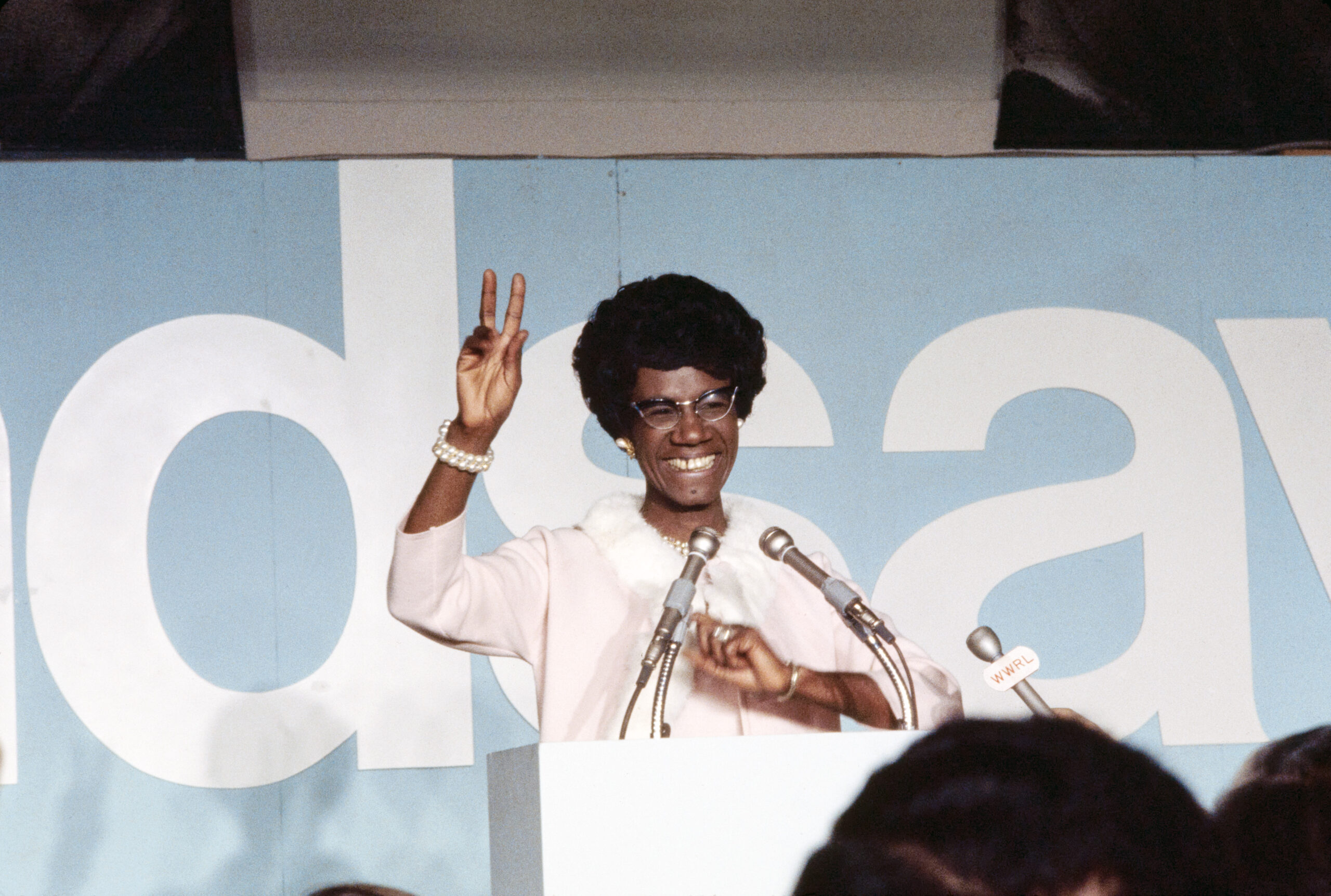Black women have been at the forefront of many movements in American culture, including politics. But one woman in particular brought her leadership on a national stage and forced the country to reckon with a truth it wasn’t ready to face. Shirley Chisholm’s life and legacy are proof Black women don’t just deserve a seat at the table. They’re qualified to lead the entire room.
Shirley Chisholm’s Early Life
Born November 30, 1924, Shirley Chisholm grew up in Brooklyn, New York. Chisholm was the oldest of four daughters and the child of immigrant Afro-Carribean parents. Her father was a factory worker from Guyana, and her mother was a seamstress from Barbados.
In terms of education, Chisholm graduated from Brooklyn College in 1946 with a Bachelor of Arts in sociology and a minor in Spanish. In 1951, she earned her Masters in elementary education from Columbia University’s Teachers College.
Before her involvement in politics, Chisholm worked as a New York City educator and child care manager. While in these two careers, she witnessed the injustice against the poor, children, and other oppressed members of society. This pushed Chisholm to join Democratic Party politics, getting elected into the New York State Legislature in 1964.
Important Landmarks in Shirley Chisholm’s Career
Chisholm won the election for Congress in 1969, making history. Representing New York’s 12th Congressional District, she became the first Black woman in Congress. She served for seven years before retiring in 1983.
During her tenure in the political office she made great strides for women, Black women, and the Black community. For example in 1971 she was part of the founding group for both the Congressional Black Caucus and the National Women’s Political Caucus. Chisholm supported employment and education programming as well as the extension of day care.
Making History in 1972
In January 1972, Chisholm announced her official run for presidency. The leader was already a powerhouse, known for speaking truth to power, fighting for civil rights, education reform, and economic justice. However, Chisholm’s presidential run was radical.
Unfortunately, the powerful force didn’t win the Democratic nomination she’d worked so tirelessly to earn. Despite this, Chisholm made history as the first Black woman to bid for presidency, a momentous feat.
She was running at a time when both race and gender were seen as political liabilities. But she didn’t shrink. She didn’t compromise. She stood on that stage, Afro bold and voice unwavering, and said: “I am not the candidate of Black America, although I am Black and proud. I am not the candidate of the women’s movement of this country, although I am a woman, and I am equally proud of that. I am the candidate of the people.”
What Has Shirley Chisholm Faced?
Throughout her career, Chisholm faced tons of adversity, the most being racial injustice. As a Black woman, running for the presidency came with a slew of backlash. During her presidential bid, Chisholm was barred from participating in televised primary presidential debates.
Only after taking legal action was the political figure allowed to make one speech. Due to sexism and racism, Chisholm also found it extremely hard to garner a large amount of campaign funds.
“She had raised only $250,000 (with her expenses totaling $300,000), compared to the $12 million raised by Senator George McGovern (who ultimately secured the nomination), the $7 million brought in by Senator Edmund Muskie, the $4.7 million raised by Senator Hubert Humphrey, and the $1.5 million cultivated by Senator Henry Jackson,” Boston University reported in 2024.
Yet in spite of her struggles, the powerful Congresswoman still made her mark in the presidential sphere. Despite the calculated attacks, Chisholm earned a surprising amount of the delegates’ votes.
“She entered 12 primaries and garnered 152 of the delegates’ votes (10% of the total)—despite an under-financed campaign and contentiousness from the predominantly male Congressional Black Caucus,” the National Women’s History Museum reported in 2015.
The Legacy Shirley Chisholm Left Behind
Chisholm passed away from stroke complications in 2005. Although she never really received the political justice she deserved, she earned many honors later in her life.
The running list includes being inducted into the National Women’s Hall of Fame in 1993. In 2015, she posthumously received the presidential Medal of Freedom from former president Barack Obama. Former New York Governor Cuomo even named the state’s largest and newest park in Chisholm’s honor in 2019.
The things Chisholm advocated for are still relevant in 2025. Her historic presidential bid wasn’t just about winning—it was about disrupting. Although she didn’t win the presidency, Chisholm’s run cracked the door open. Decades later, her impact can be felt in every Black woman who’s run for office (including Kamala Harris), organized grassroots movements, or simply dared to take up space in politics.
